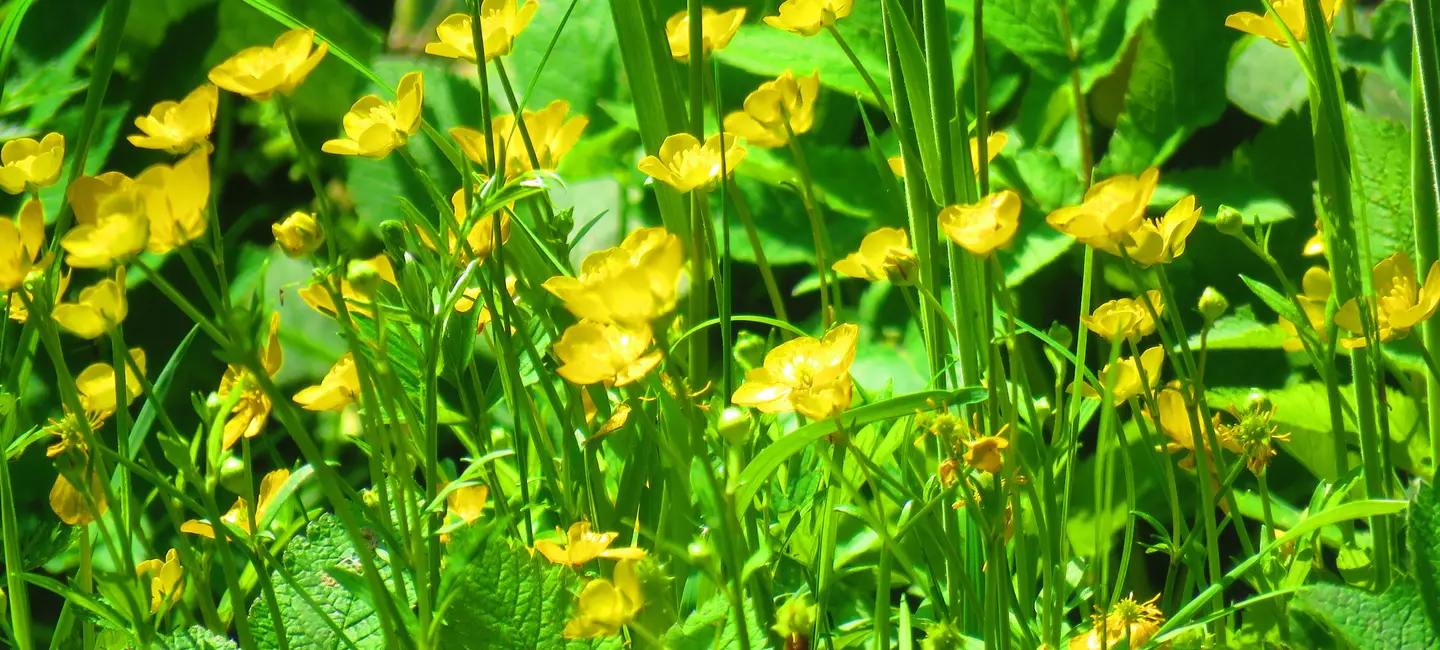
Cursed buttercup (Ranunculus sceleratus) is an herb. The parts that grow above the ground are sometimes used to make medicine.
Fresh cursed buttercup contains a chemical that can cause severe irritation when it comes into contact with the skin or the mouth, throat, stomach, or intestines.
Cursed buttercup is used for skin conditions, but there is no good scientific evidence to support any use. Cursed buttercup might also be unsafe.
Do not confuse cursed buttercup with buttercup or bulbous buttercup. These plants are not the same.
Is It Effective?
There is interest in using cursed buttercup for a number of purposes, but there isn't enough reliable information to say whether it might be helpful.
Is it Safe?
When taken by mouth: Fresh cursed buttercup is likely unsafe. It can irritate the mouth, throat, stomach, and intestines and cause serious side effects. There isn't enough reliable information to know if dried cursed buttercup is safe or what the side effects might be.
When applied to the skin: Fresh cursed buttercup is likely unsafe. Contact with the fresh plant can cause skin blisters and burns that are difficult to heal. There isn't enough reliable information to know if dried cursed buttercup is safe or what the side effects might be.
Special Precautions & Warnings:
Pregnancy and breast-feeding: It's likely unsafe to take cursed buttercup by mouth or apply it to the skin when pregnant or breast-feeding. It might make the uterus contract, and this could cause a miscarriage.
It is not known if Cursed Buttercup interacts with any medicines. Before taking Cursed Buttercup, talk with your healthcare professional if you take any medications.
There are no known interactions with herbs and supplements.
There are no known interactions with foods.
There isn't enough reliable information to know what an appropriate dose of cursed buttercup might be. Keep in mind that natural products are not always necessarily safe and dosages can be important. Be sure to follow relevant directions on product labels and consult a healthcare professional before using.
Apio Sardónico, Celery-Leafed Crowfoot, Cursed Crowfoot, Herbe de Feu, Herbe Sardonique, Mort aux Vaches, Ranunculus sceleratus, Renoncule à Feuilles de Céleri, Renoncule Scélérate, Sardonia.
Information on this website is for informational use only and is not intended to replace professional medical advice, diagnosis, or treatment. While evidence-based, it is not guaranteed to be error-free and is not intended to meet any particular user’s needs or requirements or to cover all possible uses, safety concerns, interactions, outcomes, or adverse effects. Always check with your doctor or other medical professional before making healthcare decisions (including taking any medication) and do not delay or disregard seeking medical advice or treatment based on any information displayed on this website.
© TRC Healthcare 2024. All rights reserved. Use and/or distribution is permitted only pursuant to a valid license or other permission from TRC Healthcare.
